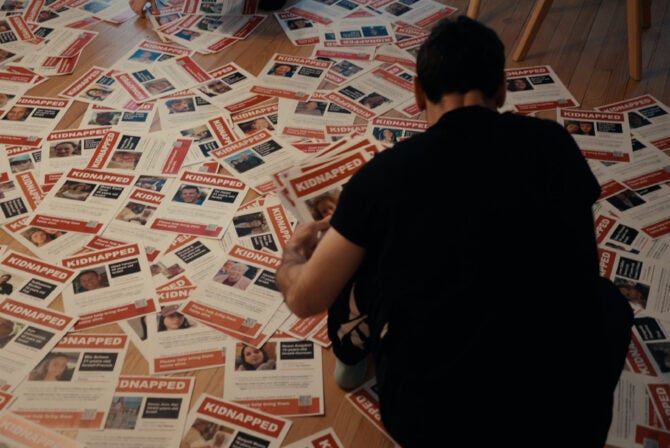I often espouse controversial opinions. For example: Licorice is the worst. Under the right circumstances, yoga pants totally qualify as acceptable day-wear. Vegemite is disgusting (okay, that one is only controversial in Australia). But, certainly in this context, what I am about to say might be one of my more controversial statements.
We should talk to young Jewish children about Santa. In their first year of kindergarten, if not before. Every parent needs to have a “Santa Claus conversation.”
It begins like this: “Santa is not real.” And then talk about secrets.
There are some secrets that make you feel good. Planning a surprise party for a friend, covertly making a macaroni necklace for grandma, or finding a special corner in the house where you can sneak away to do puzzles by yourself are all good secrets. These kinds of secrets sit well in your body; they don’t make your kishkes churn or weigh down your keppie. These kinds of secrets make you feel excited and happy. Santa is one of these secrets. We don’t tell our non-Jewish friends about Santa; he is their parents’ secret with them. We do not want to ruin that secret.
But there are other kinds of secrets.
There are secrets that do not sit well in your body; they do not make you smile when you think about them. These kinds of secrets feel this way because they need to come out. When someone tells you about these secrets or when someone — anyone — asks you to keep a secret that makes you feel bad, that bad feeling is a signal. Like coughing is a sign that you have yucky stuff in your lungs that needs to come out; like sneezing is an indication that you have something that isn’t good for you up your nose. When a person asks you to keep a “bad feeling” secret, it is a signal that you need to tell an adult you trust about that secret; indeed, tell every reliable grown-up until someone believes you.
In the Pardes method of biblical investigation, we often associate secrets with an amazing revelation, full of awe and wonder, found after ages of investigation and research. The prophet Amos notes that God reveals secrets to the prophets that help to explain the divine role in the world. (Amos 3:7) These secrets feel special, and that correlation is reinforced by parts of the Tanakh (the Hebrew Bible).
Proverbs 11:13 and 20:19 encourage secret-keeping, declaring that “a base fellow gives away secrets.” Proverbs 25:19 warns that disclosing secrets could permanently ruin a person’s reputation. However, the Bible reveals that not all secrets are good ones. Channeling God, the prophet Nathan curses King David for keeping Bathsheba and his interactions with her a secret. “You acted in hiding,” seemingly booms the voice of divine, “but I will make this happen in the sight of all Israel and in the sunshine.” (2 Samuel 12:11-12)
As woman after man after woman builds up the courage to bring their most difficult secrets to light, from a social media #metoo post to legal action, it is natural for parents to wonder how they can shield their children from such experiences. If we are unable to do so in our uncertain world, we want our children to know that some secrets do not need to be hidden; rather the divine spark within us agitates to bring these kinds of secrets into the sunshine. When that happens, we, their trusted adults, are here to listen.
For us, the conversation can start with Santa.







